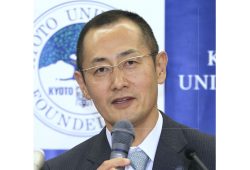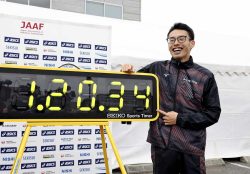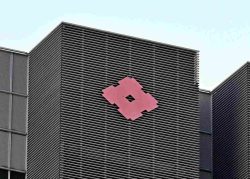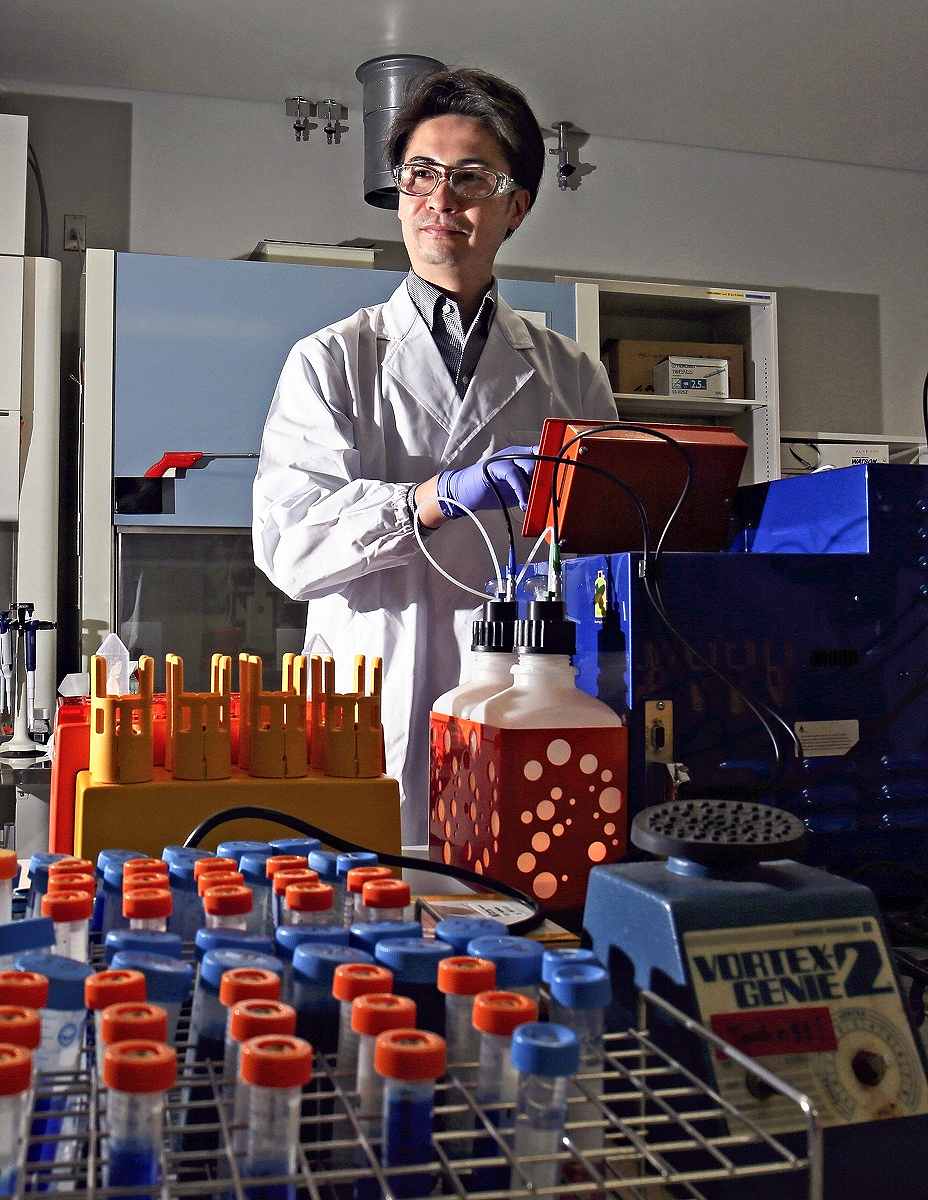
Researcher Shinya Omoto
18:18 JST, January 10, 2021
The importance of medical research and development, which affects the lives of many people, has been recognized afresh. This is the first installment of a series in which we will explore the current state of Japan’s development capabilities at the forefront of industry, government and academia, which are tackling the novel coronavirus crisis and cancer.
Japan is one of the countries that are trying to develop vaccines for the novel coronavirus.
Shionogi & Co. announced in April last year that it had decided to develop a preventive vaccine against COVID-19.
Shinya Omoto, 42, who is in charge of vaccine research at the company, felt his researcher’s spirit ignited.
Shionogi is one of the few Japanese companies involved in drug discovery for infectious diseases. Although the company has extensive experience in developing therapeutic drugs, it launched its vaccine project in earnest 2½ years ago. Omoto was frustrated at often being asked, both within and outside the company, “Why haven’t you started [working on a vaccine for] the novel coronavirus?” He felt he had to work on the novel corona virus as a virus specialist.
Omoto’s team, together with the National Institute of Infectious Diseases, narrowed down the effectiveness and safety of several vaccine candidates by testing them in vitro and with animals. Even while commuting by train or taking a bath, his mind is full of thoughts about vaccines.
With their ambition “to create a product of higher quality than anywhere else in the world,” the team has dramatically reduced the time it takes to develop a new drug, which is typically more than 10 years. To achieve early commercialization, they also started to build a commercial production system in April and started their first clinical trial in December. This shows unusual speed. But the pace of development by foreign companies like Pfizer has been even faster. In Europe and the United States, vaccinations have already started.
Nevertheless, the development of domestic vaccines is absolutely necessary. Mari Ariyasu, who oversees vaccine development at Shionogi, is looking to the future. “A new pandemic is possible,” she said. “We can’t just depend on other countries.”
Cancer kills nearly 10 million people worldwide each year. Last year, the world’s first photoimmunotherapy treatment was approved in Japan and became covered by health insurance in December.
In this treatment, cancer cells are pinpointed and destroyed when a special drug is given intravenously and a laser beam is applied. In 2012, then U.S. President Barack Obama mentioned the treatment in a speech to Congress.
The treatment was developed by Hisataka Kobayashi, 59, a senior researcher at the U.S. National Institutes of Health. Rakuten Medical, Inc., chaired by Hiroshi Mikitani, 55, of Rakuten Inc., has commercialized a medicine and laser device and received approval only six months after its application.
In terms of medical development capabilities, breadth and speed are important. This is because not only viruses but also various other enemies are attacking humanity one after another.
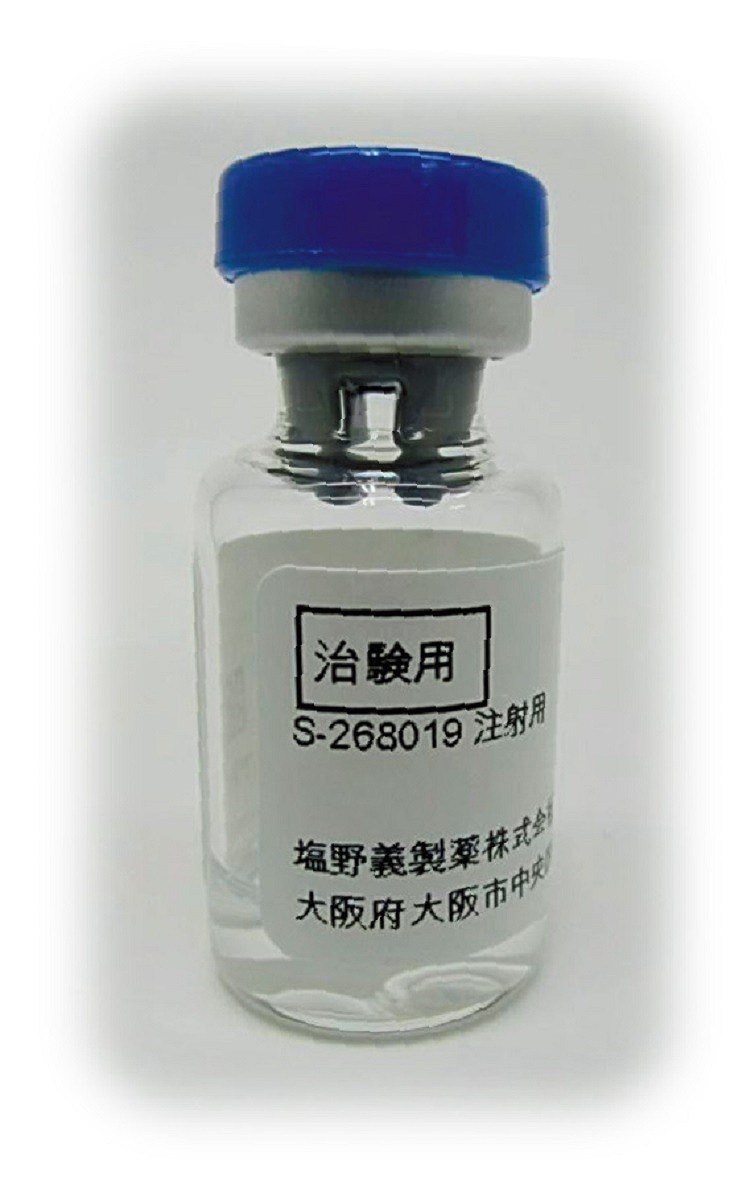
Shionogi’s novel coronavirus vaccine for clinical trials
■All-Japan battle
Last year, humanity’s vulnerability to pathogens was made painfully clear on a global scale.
Humans have always lived with bacteria and viruses. Medicine has been developed to fight the infectious diseases they cause. Since the 19th century, the development of vaccines and antibiotics has led to dramatic advances in prevention and treatment. In the latter half of the 20th century, life expectancy in developed countries had dramatically increased due to improvements in food and sanitary conditions. Lifestyle-related diseases and cancer became the main enemies mankind must fight.
But the novel coronavirus has wreaked havoc on society and the economy on a global scale. Japan lags behind other countries, including the United States and European nations, in the development of vaccines, which is now the top priority. Countermeasures against infectious diseases are a matter of national security. Japan must put an end to the current situation in which it has the technology but not the ability to put it to practical use.
A recombinant protein vaccine being developed by Shionogi is already in practical use for other infectious diseases, and is expected to be safe. The company’s manufacturing subsidiary has partnered with rival AnGes, Inc. to produce some of the novel coronavirus vaccines.
In order to overcome the coronavirus crisis and find vitality in a super-aging society, it is essential for the government, industry and academia to join forces to enhance medical development capabilities on an all-Japan basis.
Top Articles in Society
-

Man Infected with Measles May Have Come in Contact with Many People in Tokyo, Went to Store, Restaurant Around When Symptoms Emerged
-

Woman with Measles Visited Hospital in Tokyo Multiple Times Before Being Diagnosed with Disease
-

Australian Woman Dies After Mishap on Ski Lift in Nagano Prefecture
-

Foreign Snowboarder in Serious Condition After Hanging in Midair from Chairlift in Nagano Prefecture
-

Record-Breaking Snow Cripples Public Transport in Hokkaido; 7,000 People Stay Overnight at New Chitose Airport
JN ACCESS RANKING
-

Japan Institute to Use Domestic Commercial Optical Lattice Clock to Set Japan Standard Time
-

Israeli Ambassador to Japan Speaks about Japan’s Role in the Reconstruction of Gaza
-

Man Infected with Measles May Have Come in Contact with Many People in Tokyo, Went to Store, Restaurant Around When Symptoms Emerged
-

Prudential Life Insurance Plans to Fully Compensate for Damages Caused by Fraudulent Actions Without Waiting for Third-Party Committee Review
-

Woman with Measles Visited Hospital in Tokyo Multiple Times Before Being Diagnosed with Disease










